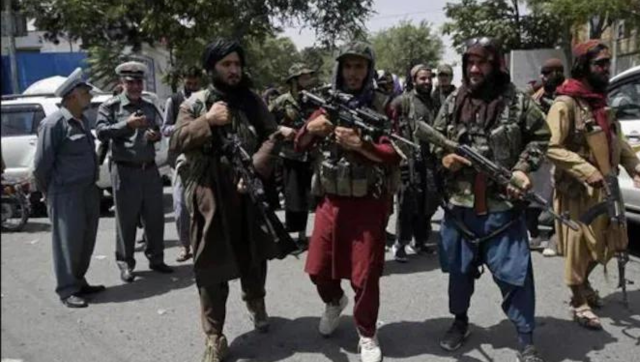Kabul: As the Taliban administration plans to increase forces by a third and develop anti-aircraft missile capability, the military leader told Reuters in a rare encounter with international media that the military has received the largest portion of funding in Afghanistan’s budget. The Afghan Taliban, who seized political power in Afghanistan when they captured Kabul in August 2021, face harsh international criticism for their policies, including limitations on women’s access to employment and school, which has slowed their efforts to get diplomatic recognition. Qari Fasihuddin Fitrat, the chief of army staff and a Taliban commander from the Badakhshan province in the north, spoke out against foreign drones entering Afghan airspace on Tuesday. Speaking from his office in the heavily protected defence ministry in Kabul, the capital, the defence troops, which currently number 150,000, are intended to be augmented by 50,000, he added, but he did not provide the actual amount of funds. “The ministry of defence is the top-ranked in the budget,” he said. Fitrat added that it received a significantly higher sum than other ministries, as it was a priority in the budget, which is largely funded by boosted tax and customs revenue. Since taking power, the Taliban have invested one and a half years in creating a civilian government and a national military from a rebel group that fought a 20-year conflict against foreign forces and the former Afghan government that was supported by the United States (US). The government, which is dealing with economic difficulties as a result of sanctions on the banking industry and the suspension of all development aid, has not been formally recognised by any foreign country. Fitrat said a major defence focus was securing Afghan airspace against drones and other incursions. “Anti-aircraft missiles are the need of countries,” he said, adding that all nations sought developed weapons to ensure the integrity of their territory and airspace, a problem Afghanistan also faced. There is no doubt that Afghanistan is trying, and doing its best, to have it," he was quoted as saying by news agency Reuters. Fitrat declined to go into further detail about the sources that the government was looking to buy its anti-aircraft missiles from. He also refrained from identifying Pakistan, whose neighbour the Taliban government has frequently objected and charged with allowing drones to infiltrate Afghanistan. “We are doing our best to find a solution for protection of our airspace. We will work on it by using all our capability,” Fitrat added. “From where we will obtain it is confidential, but we should have it.” An inquiry for comment was not immediately answered by Pakistan’s foreign ministry. Officials from Pakistan have not verified whether drones approach Afghanistan from their skies. “We have always tried, and will try, to solve the issue using diplomatic ways, and we have done our best to be patient regarding these cases,” Fitrat said, but sounded a note of caution. “Neighbouring countries should not let our patience be exhausted.” Relations between the neighbours have occasionally been difficult because Pakistan accuses the Taliban government of allowing militant groups to exploit Afghan territory as a safe haven. The Pakistani Taliban (TTP), which has increased attacks in Pakistan recently, is one of them. Yet, the Taliban government denies permitting attacks on other people to take place on its soil. Both countries’ armed forces have engaged in border confrontations, and many believe Pakistan’s air force would give them a significant advantage if the conflict escalated. Fitrat claimed that Taliban militants were being paid and treated similarly to former security personnel, who make up a large portion of Afghanistan’s military. The remarks come after international rights organisations and the UN expressed alarm that some former Afghan security force members had been assassinated or attacked. The Taliban have announced a wide amnesty for former militants and promised to look into any wrongdoing, but they have not specified what legal action will be taken in the case of any extrajudicial targeting. (With agency inputs) Read all the Latest News , Trending News , Cricket News , Bollywood News , India News and Entertainment News here. Follow us on Facebook, Twitter and Instagram.
The Afghan Taliban, who seized political power in Afghanistan when they captured Kabul in August 2021, face harsh international criticism for their policies, including limitations on women’s access to employment and school, which has slowed their efforts to get diplomatic recognition
Advertisement
End of Article


)

)
)
)
)
)
)
)
)



